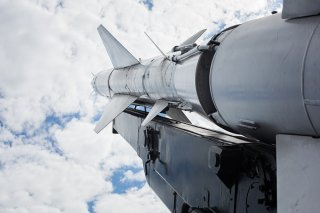North Korea Has Room For Only One Patron
Will China make a play to disrupt the growing relationship between Russia and North Korea and remain North Korea’s primary patron?
Without Russia, the Democratic People’s Republic of North Korea and the Kim regime wouldn’t exist. Today, part of that legacy is that North Korea is the longest-lived communist country in history. With nearly eighty years of history, the complexities of Russo-DPRK entanglement can’t be overstated. North Korea is often the recipient of Moscow’s aid and protection. However, the ebb and flow of history have created a period in which the benefits of bilateral ties are greater than ever before.
In its war of aggression against Ukraine, Moscow has drained much of the conventional military stocks it had built up over generations and stunted its economy, making the procurement and manufacturing of new weapons increasingly more difficult.
In Pyongyang, the country is more isolated and more sanctioned than ever. Furthermore, its actions during the COVID-19 pandemic also severely damaged its economy and drained its foreign currency reserves as the government sought to maintain the loyalty of the country’s elite and still fund its weapons of mass destruction (WMD) programs.
Adapting to this new reality, Russia has taken a posture of eschewing international law in favor of trying to remedy its immediate war needs, namely, more artillery and ballistic missiles. And North Korea has taken advantage of Russia’s needs by offering up its vast armaments industry in return for grain, oil, and economic and military-technical assistance.
Although mutually beneficial in the short-term, this relationship signals the end of Russia’s role in the world as an architect and leader of the post-WWII world order that it was instrumental in creating. Russia has now violated the United Nations (UN) Charter and multiple United Nations Security Council resolutions enacted against North Korea, all of which Moscow played a role in crafting in the first place.
On the other side, North Korea is no stranger to being a pariah. It views diplomacy as a necessary evil, something necessary for its ambition to become the dominant regional power through coercion. Thus, attaching itself to another member of the “isolation club” is of little concern so long as it can extract resources in the process.
The 2024 “Treaty on the Comprehensive Strategic Partnership” between the two countries has been described as a landmark by some. Still, it largely offers the same vapid language both countries have routinely used in their propaganda, such as a desire for mutual respect for national sovereignty and territorial non-aggression. Neither country has ever honored these concepts in its history.
With no end in sight for the Ukraine war, the treaty may help lay the groundwork for a relationship that lasts years. However, we can’t lose sight of the historical fact that North Korea has attempted to play Russia and China off one another, feeding into their competitiveness in a bid to gain additional favor from both sides.
However, Beijing seems to have grown weary of Pyongyang’s belligerence and has shown lackluster support for Moscow’s war, so North Korea is currently cozying up to the side that is offering the most substantial rewards.
But through this alliance and, more directly, through Russia’s war, Russia has lost a tremendous amount of soft power, seen cultural, sports, and scientific influence, and has been forced to turn to a former client state to maintain its battlefield operations.
Will China make a play to disrupt the growing relationship between Russia and North Korea and remain North Korea’s primary patron? Or will it instead maintain focus on maintaining its international standing by not getting in the way of Russia’s self-immolation in the world’s eyes?
As is so often in these cases, only time will tell. But it does look like this renewed Russo-DPRK friendship can only lead to a win-lose outcome, with Putin not only destroying Russia’s standing in the world but also cracking the foundations of the international order that has previously enabled the most prosperous period in human history, and, coincidentally, provides North Korea with more opportunities to violate the law.
In Putin's vision of a multipolar future, Russia will remain in the shadows.
Jacob Bogle is a U.S.-based North Korea analyst who runs the AccessDPRK blog, which uses open-source intelligence to improve the understanding of military, economic, and cultural sites in the country. Follow him on X: @JacobBogle.
Image: Shutterstock.com.

